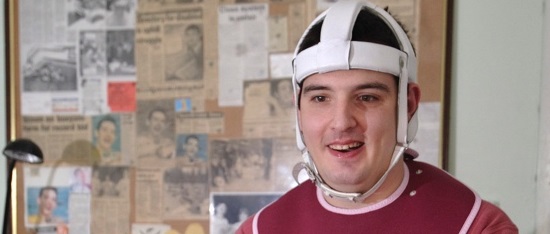
Disability activist Simon Stevens: I’m disabled, I’m gay and I’m controversial
Simon Stevens, a sometimes contentious disability activist, is determined to encourage other disabled people to ‘‘forgive, like, love and enjoy themselves” to help them take back power. Read his story to really understand the man behind the controversy.
My name is Simon James Stevens. I am 45 and live in Coventry, and my core identity is that I have cerebral palsy to a significant degree. I also have nerve pain, mild bipolar (where I can feel up and down in mood at the same time), as well as mild asthma. In addition, I am gay.
I have found myself now being an internationally-respected disability activist, which I find humbling as it is just how I am. I am also a disability consultant, trainer, researcher, writer, actor, comedian and anything else I can be paid to do. I have worked with more than 200 organisations and I enjoy my work, although it can be hard to get paid opportunities.
I want to stress that I do not pity myself or think I am better than anyone else. I believe that in using my natural hyper-intelligence – which is more of a curse than a gift because I am living in a spastic body – as well as my determination and courage, mean I am merely taking up the opportunities offered to me.
No regrets – I’m driven by helping disabled people
I am open and honest and I am fully aware that this makes me controversial. I know I have upset a lot of other disability activists over the years with my challenging views. But I have no regrets.
However, because people who are prepared to listen to me understand my commitment to helping all disabled people have the best life experiences and opportunities, that requires taking on responsibilities.
My supposed achievements have been widely publicised. While they are amazing, they are by-products of who I am. Of course, it is exciting to go to a reception in Parliament or at Downing Street, but it is part of my work.
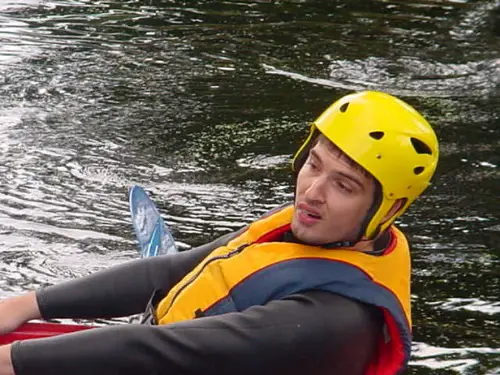
But my real achievement is helping others around the world in many ways, big and small. Despite all the helplines for disabled people, friends often ask me for advice as they know I actually do know it all and, if I don’t, I will find out very quickly!
I’ve had as many ups as downs
While there have been many positives, there have also been many negatives. My parents were emotionally and physically abusive and I was bullied at mainstream school for five years – the headmaster said it was part of my education.
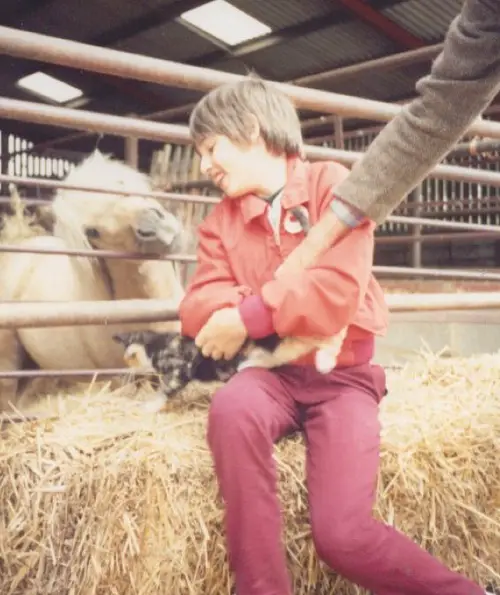
I have been mugged in my own home twice and had plenty of problems employing personal assistants over the last 27 years. I talk about these issues not for sympathy or pity, but because it is important to own these experiences and become stronger. They have all played a part in how I am now.
My biggest frustration is when people assume I lack intelligence – that happens on a daily basis. My solution is sarcasm and wearing outrageous t-shirts and other clothing; after all, if people are already staring at me, enjoy it.
To challenge others, I like referring to myself as a drooling spastic, a hyper-intelligent defective and, as I would have been called in the early-1990s, a congenital idiot.
I actually see these as positive terms, a powerful method of changing the power relationship. So many people who supposedly control me are absolutely scared of me as I answer back with intelligent questions that they are unprepared for.
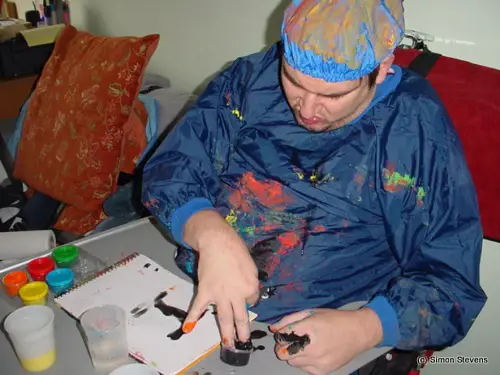
Changing the power relationship for disabled people
I am passionate about other disabled people taking back the power they deserve. All people, not just those that are disabled, should forgive, like, love and enjoy themselves.
The past is the past. But I do not believe in ‘forgive and forget’. Every now and then, your mind will demand that you process good and bad memories. This is OK if you have accepted them and accepted that stuff happens.
It is OK to bathe in memories every now and then, and even to get emotional sometimes – as long as it is an honest reflection and without malice to anyone. What may have happened to you can’t be changed and only you can decide how to respond to that.
You are the most important person in your life, so you must like yourself. This can be hard to do, but it is important to try. Liking yourself is about understanding and accepting who you are and being OK with that.
Loving yourself is harder. This is about celebrating your identity and telling people “this is me’’. As a gay man with cerebral palsy, London Pride is one day of the year when I can truly celebrate myself and be celebrated by others.
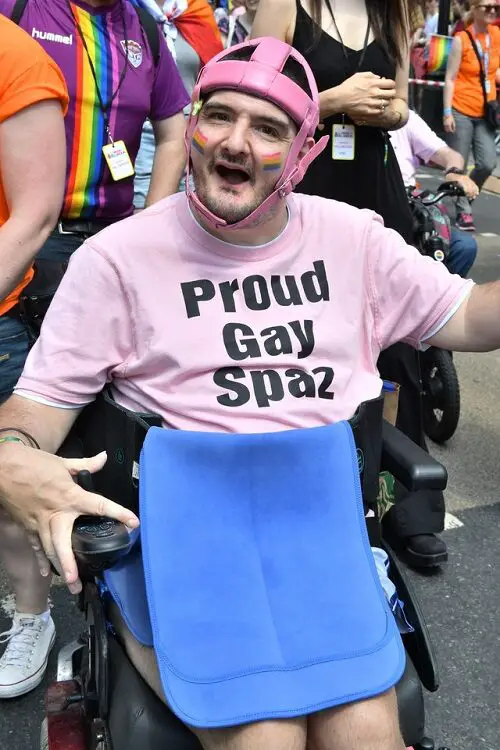
Enjoying yourself means two things. Firstly, it means having a ‘bucket list’ of things you would like to try and do. Whatever your impairment, there are solutions to support you, as long as you are open-minded and work with the instructor. I have been swimming in a cave in Wales and rafting in Turkey, because I wanted to do it and found ways to do it.
The second thing is to live how you wish to live on a daily basis, including what equipment you wish to use. If you think a bib is helpful, or a boiler-suit is comfortable as daywear or sleepwear, then wear them. It is hard at first to accept this – I call it ‘denormalising’ – but becoming yourself will make you happier.
At 45, I have become myself and I am happy. The discrimination I face will always remain but I have lived well and I am committed to using my experiences to support other disabled people to live well too.
By Simon Stevens
You can find out more about Simon Stevens or get in contact with him by visiting his website.
More on Disability Horizons…